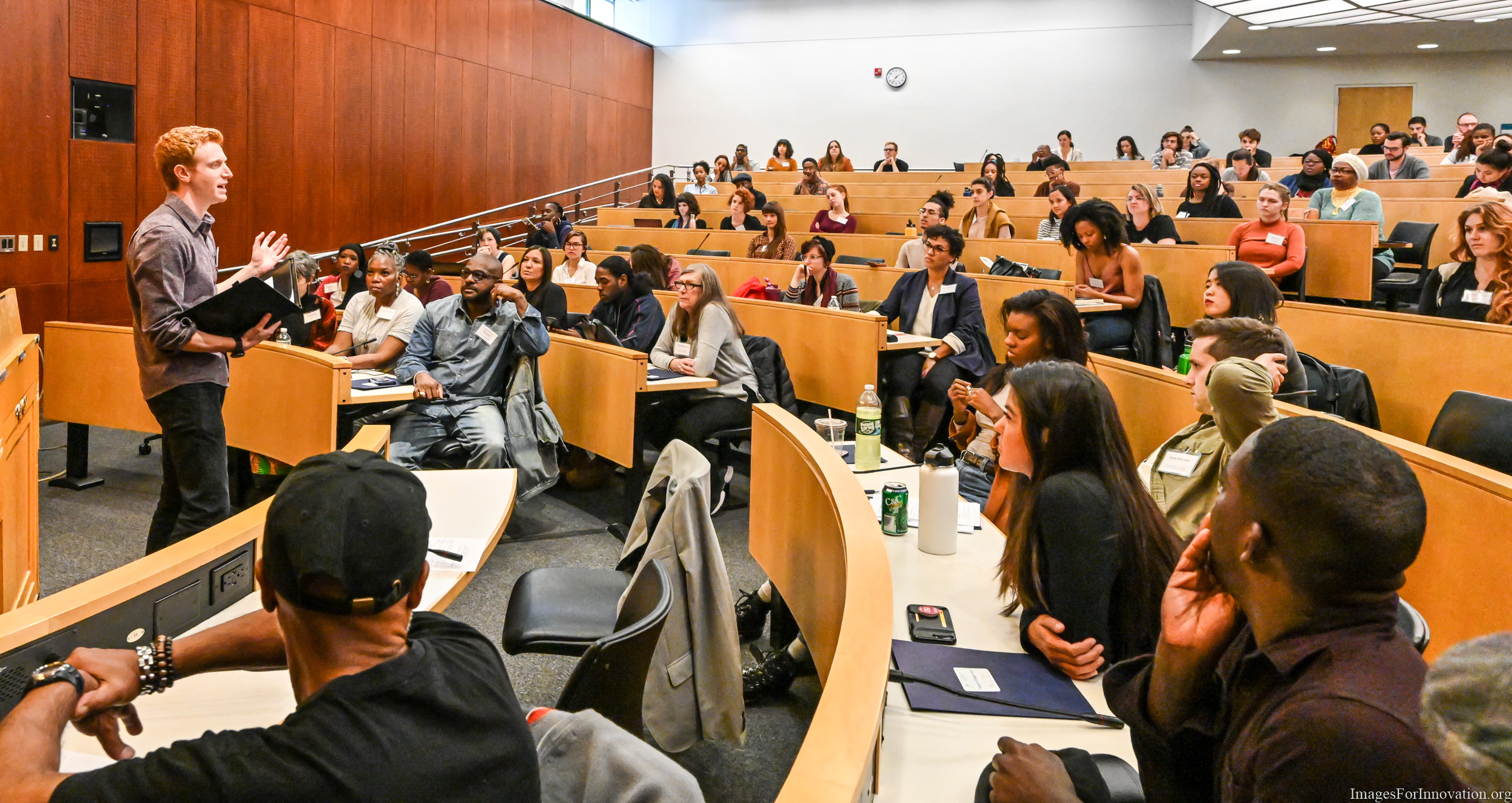by Manel Chibane
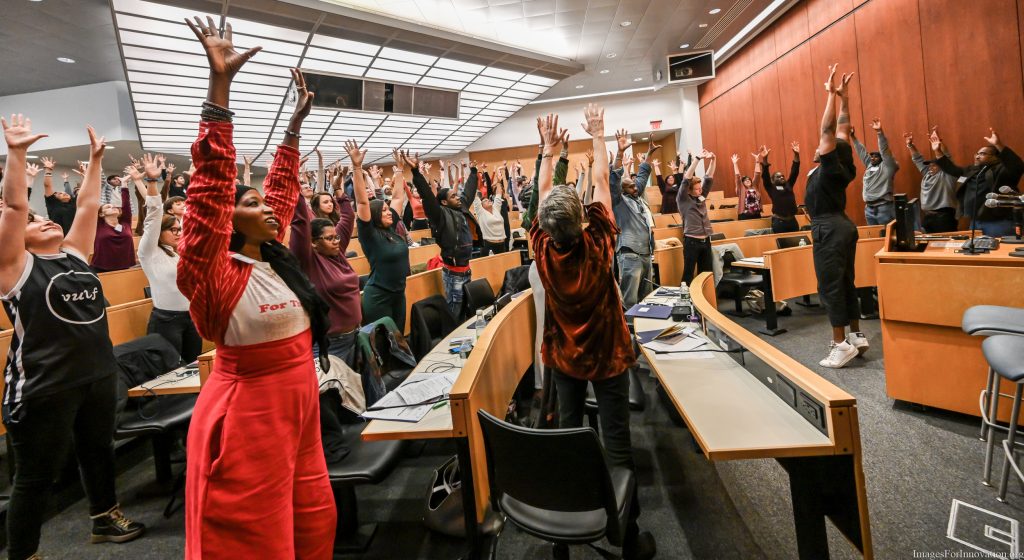
Averi Israel, Graduate Legal Studies Communications Manager:
During the J-Term, as the Communications Manager for the LL.M. Program, I had the privileged of auditing the first Theater of Change class at CLS. The week-long course brought together law students and professors, New York City policy makers and advocates, professional artists, and directly impacted individuals to study policy issues and create story-based engagement strategies to address those issues.
The class was unlike anything I’d ever experienced. For one, it was incredible to see everyone in the room interacting as equals; for in my experience, there are few arenas where these populations of individuals come together and engage on a human level, opposed to client-provider relationships. This too struck the law students participating in the class, as they noted how common it is for lawyers to make life-altering decisions about people and communities they know little about.
The J-Term week concluded with presentations of the performance pieces we’d all created to engage our assigned policy issues. The results left me speechless, that in so little time, such impactful work could be done.
The process unfolded again this fall in a weekend Theater of Change Forum. LL.M. student Manel Chibane shares her experience at the forum:
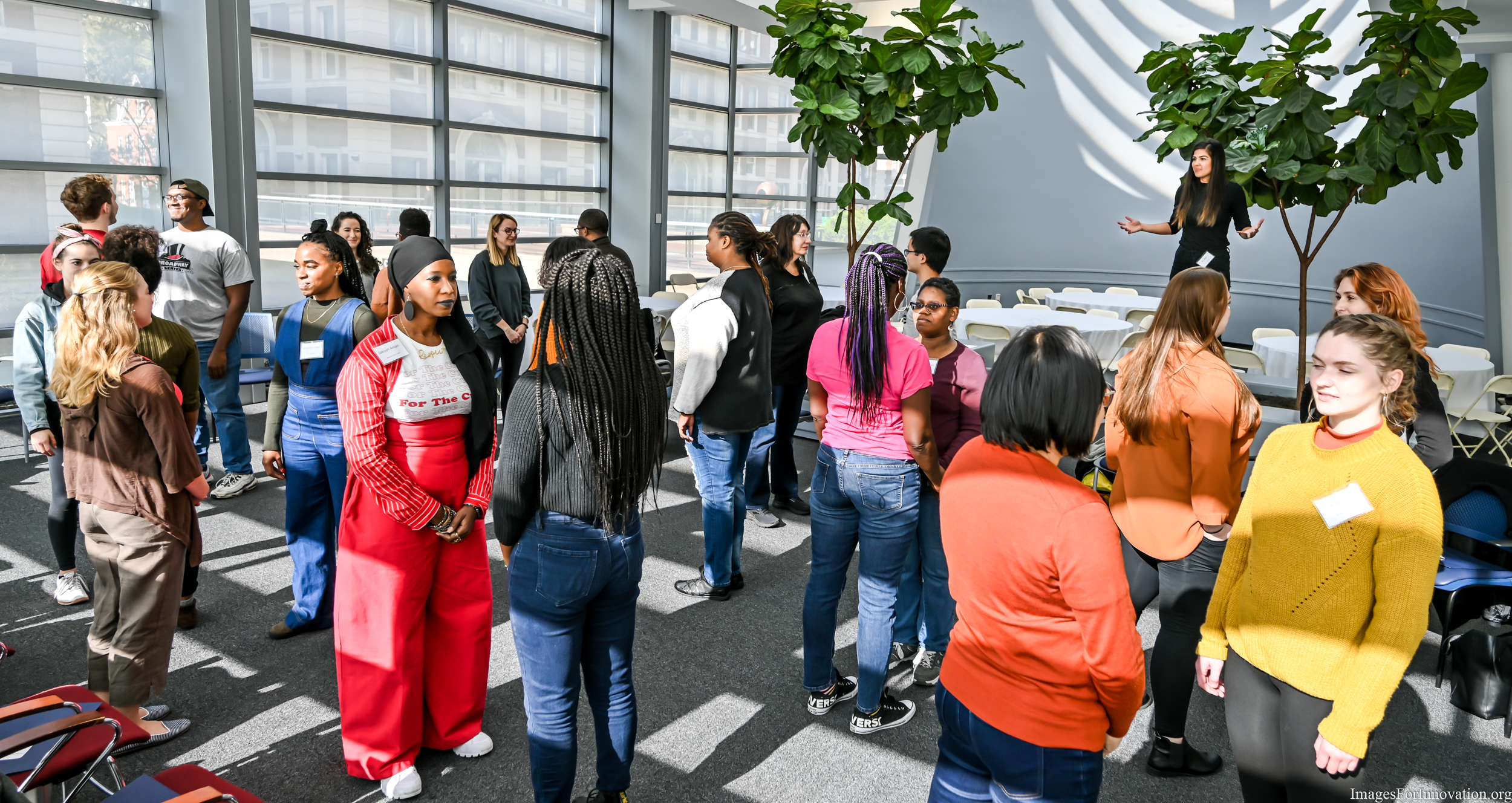
by Manel Chibane
When I arrived at CLS, I was told the biggest challenge would be finding a free seat at the library.
That advice probably came from people who had not experienced the Theater of Change program. In one weekend, we gathered in teams to discuss and research social justice issues, create engagement strategies, and set up a performance — all of this with people we had never met before.
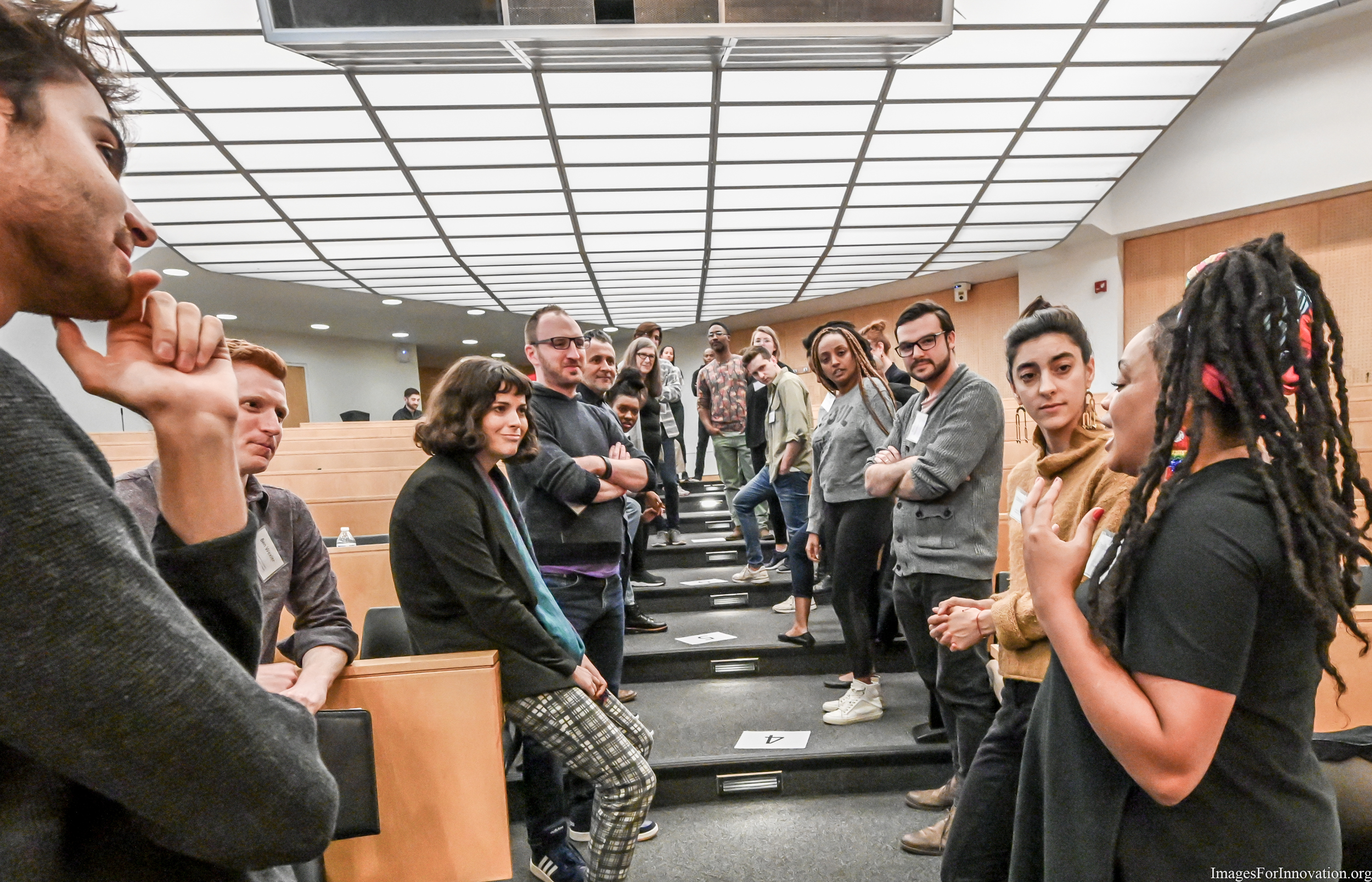
The Theater of Change is a collaboration between the Broadway Advocacy Coalition and Columbia Law School and offers the chance for students from CLS to meet with activists, artists and students from other Columbia graduate and professional schools to bring change through the arts. On the weekend of 17-19 October, four “colabs” worked around the following themes: Political Participation, Community Economic Development, Education Equity, and Re-framing Re-Entry and Parole.
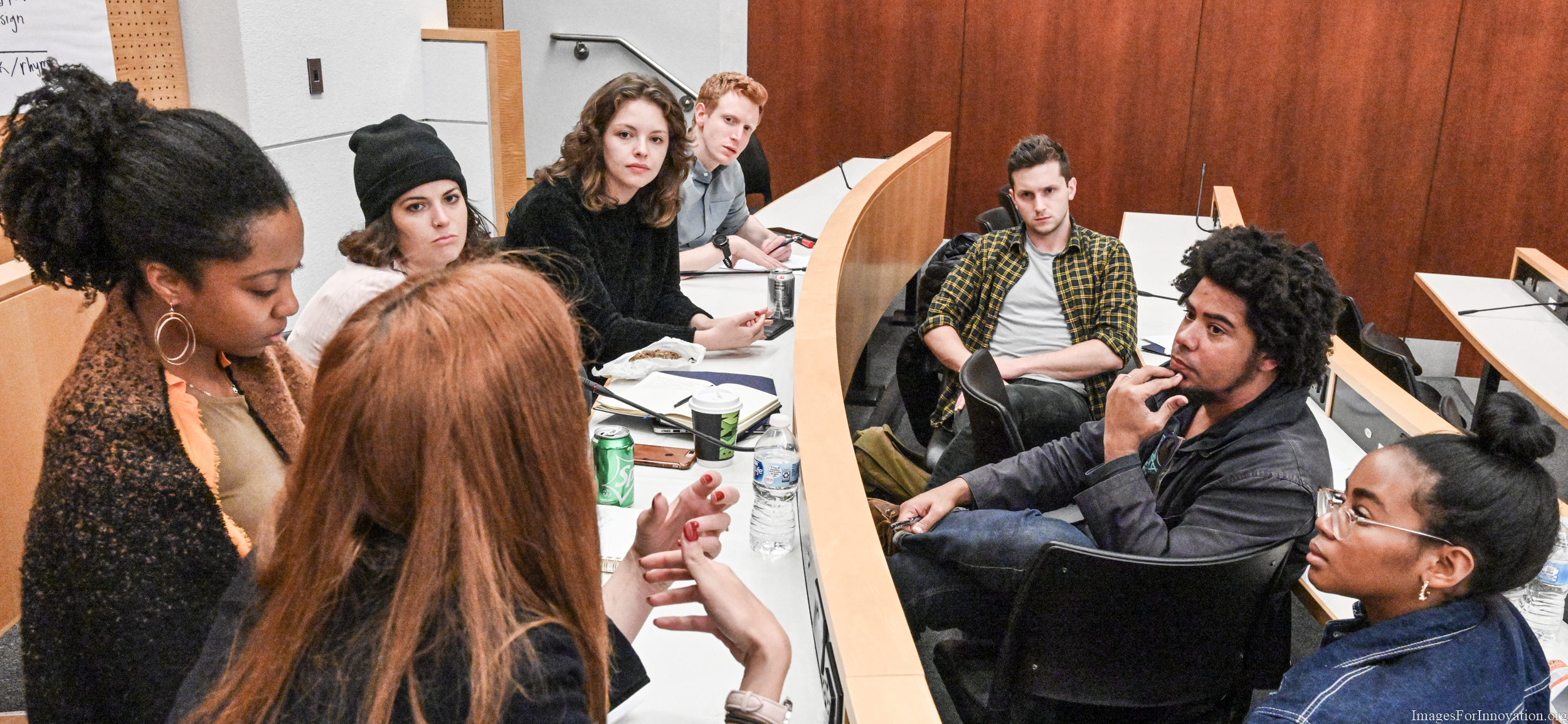
I was a member of the Re-Entry and Parole colab, led by Pastor Isaac Scott— Program Director of the Confined Arts. In our group, members from the Bronx Defenders highlighted the broad issues of segregated spaces and institutions designed to exclude minorities, such as the persistence of redlining, which establishes unfavorable rates for conventional mortgage loans in underprivileged neighborhoods, thus increasing the wealth gap, and more particularly, the legal flaws of the criminal justice system, with the example of recidivism being triggered by a second arrest rather than a second conviction. As a group, we particularly focused on the linguistic methods of dehumanization, and for our final performance, powerfully revisited the story of one of our members through a play with visuals and a musical performance.
Not only did I get the chance to learn from people who are directly involved in social justice issues, but I was also able to be part of an extraordinary gathering of talents, creativity and humor that has become the most meaningful experience I have had since I arrived in New York.
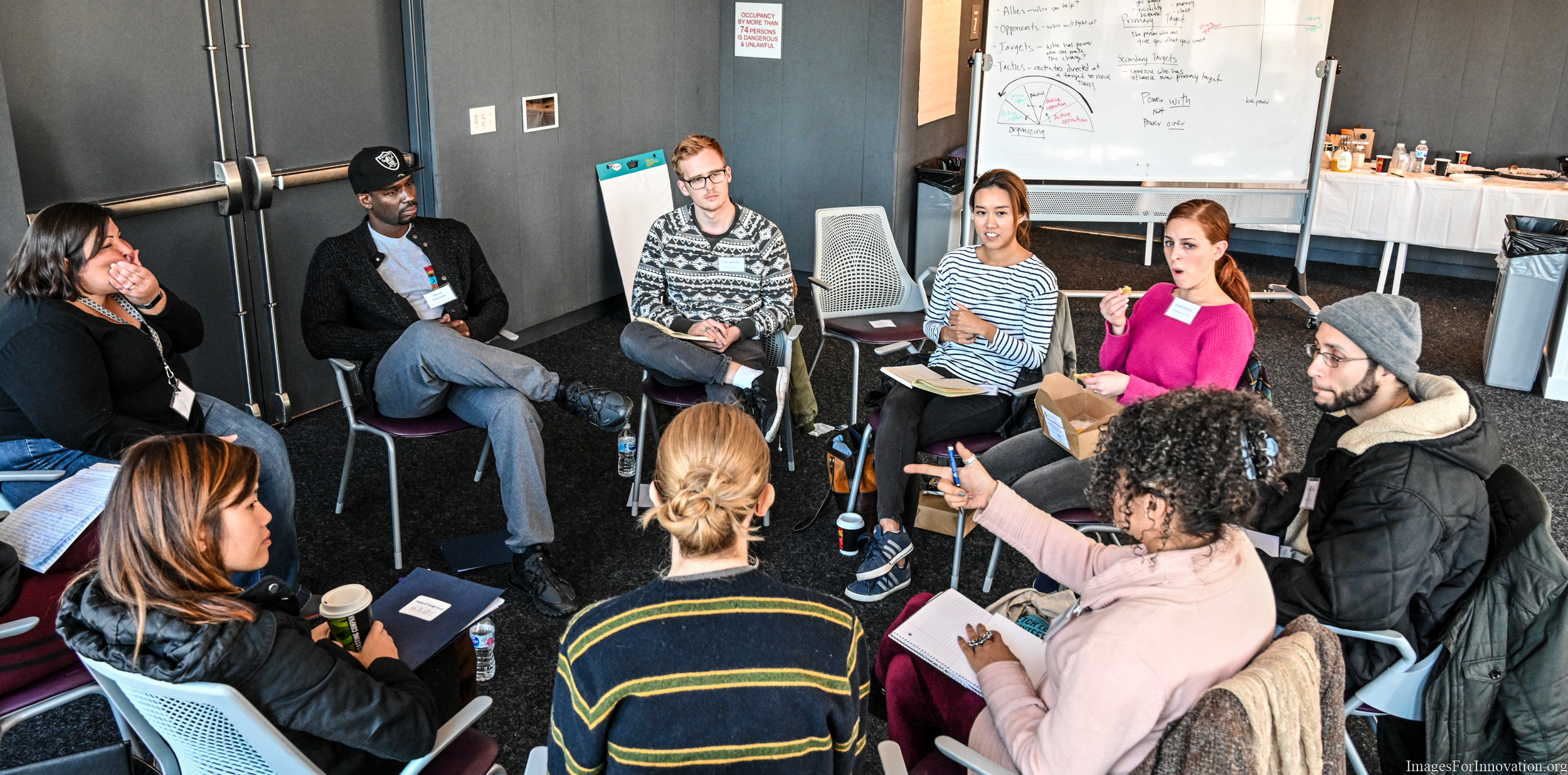
Last but not least, the Theater of Change resulted in concrete action; during the group performances on the final day, not only did the entire forum leave a collective musical voicemail to New York State Senator Brian A. Benjamin, demanding funding for state schools, but we also created a viral hashtag for the “I Strive to Thrive Campaign.”
The program, run by Professor Susan Sturm and Ben Wexler, also takes place during the January Term. It grants one credit– and the awareness and experience that no books sitting on any library’s shelves could give.
